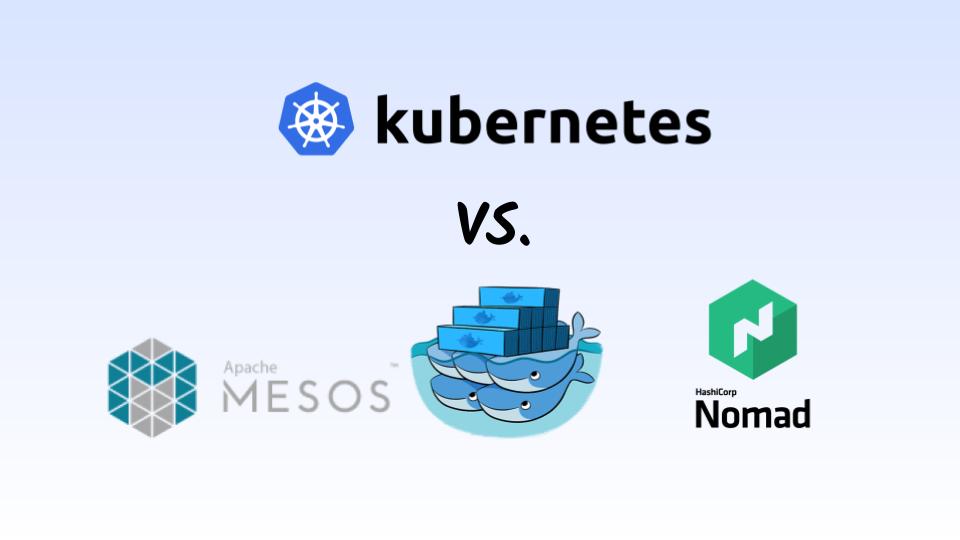Kubernetes vs. Other Container Orchestration Tools: A Comparison
As an IT company providing managed Kubernetes services, we’re often asked by clients to compare Kubernetes with other container orchestration tools. In this post, we’ll take a look at three popular alternatives to kubernetes : Apache Mesos, Hashicorp Nomad, and DockerSwarm.
First, let’s define container orchestration. In simple terms, it refers to the process of managing and deploying containers (i.e., lightweight, standalone, executable packages that contain everything an application needs to run) in a distributed environment. Container orchestration tools provide the automation and management necessary to deploy, scale, and manage containers in a production environment.
Now, on to the comparison.
Kubernetes
Kubernetes is a open-source container orchestration tool developed by Google and now maintained by the Cloud Native Computing Foundation. It’s widely adopted and has a strong ecosystem of tools and integrations. Some of the key features of Kubernetes include:
- Self-healing capabilities
- Load balancing and service discovery
- Horizontal scaling
- Automated rollouts and rollbacks
- Resource allocation and quotas
Specifications
- Uses a master-slave architecture, with a central control plane and a set of worker nodes
- Uses etcd as a distributed key-value store to store cluster state
- Offers a rich set of APIs for managing and monitoring the cluster
- Supports a wide range of container runtimes, including Docker, rkt, and CRI-O
Apache Mesos
Apache Mesos is a flexible, scalable, and fault-tolerant distributed systems kernel. It can be used to manage a variety of workloads, including containers, big data processing, and machine learning. It’s known for its ability to run on top of a variety of hardware and virtualization technologies, making it a good choice for organizations with diverse infrastructure.
Specifications
- Written in C++
- Uses a master-slave architecture, with a central master node and a set of agent nodes
- Uses ZooKeeper as a distributed coordination service
- Offers APIs for managing and monitoring the cluster, as well as a web UI for administration
- Supports a wide range of containerization technologies, including Docker, rkt, and Mesos containers
Hashicorp Nomand
Hashicorp Nomad is a simple, flexible, and scalable container orchestration tool developed by Hashicorp. It’s known for its easy deployment and operation, and can be used to manage a variety of workloads, including containers, VMs, and bare metal. Nomad is designed to be highly available and easy to operate, making it a good choice for organizations with limited resources.
Specifications
- Technicial SpecificationsWritten in Go
- Uses a distributed architecture, with no central control plane
- Uses Serf for peer discovery and Raft for consensus
- Offers a HTTP API for managing and monitoring the cluster, as well as a web UI for administration
- Supports a wide range of workloads, including containers, VMs, and bare metal
Docker Swarm
Finally, Docker Swarm is a native container orchestration tool developed by Docker, Inc. It’s relatively easy to use and integrates well with the rest of the Docker ecosystem. Swarm is a good choice for organizations that are already using Docker and want an easy way to manage their containers.
Specifications
- Written in Go
- Uses a master-slave architecture, with a central manager node and a set of worker nodes
- Uses the Raft consensus algorithm to store cluster state
- Offers a HTTP API for managing and monitoring the cluster, as well as a web UI for administration
- Supports the Docker container runtime
Ultimately, the best container orchestration tool for your organization will depend on your specific needs and goals. Consider factors such as the complexity of your environment, the size of your team, and your budget when making a decision.


